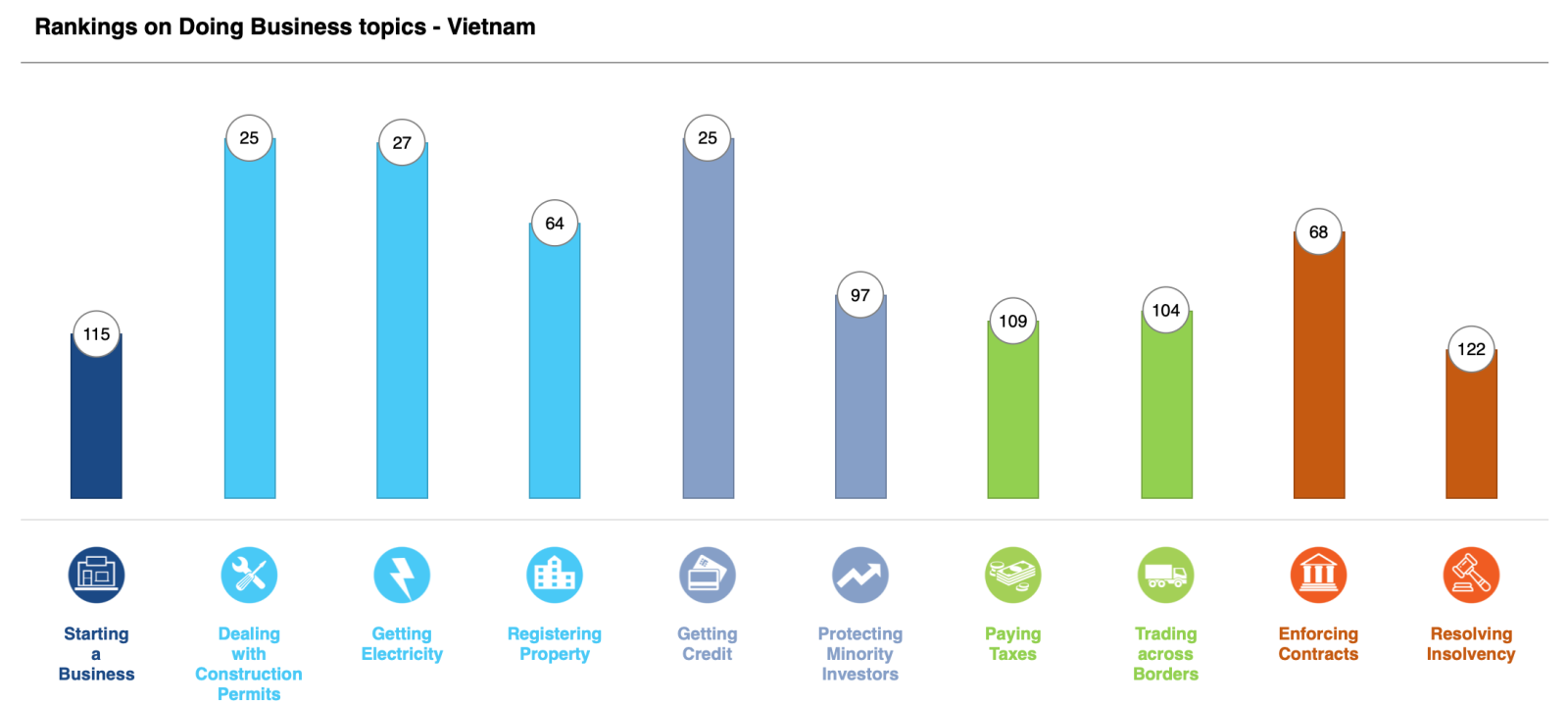Starting a business in Vietnam involves understanding the local regulations, market dynamics, and cultural nuances. Begin by researching the legal requirements for foreign investors, such as obtaining an investment registration certificate and business license. Identify a suitable business structure (e.g., sole proprietorship, joint venture, or limited liability company) and ensure compliance with tax and labor laws. Conduct thorough market research to evaluate opportunities in Vietnam’s rapidly growing economy. Partnering with local experts or consultants can help navigate administrative processes and establish strong networks.

Understanding the Legal Framework for Foreign Investment in Vietnam
Legal advice for expats starting a business in Vietnam must begin with an understanding of the legal framework governing foreign investment. Vietnam’s legal system has undergone significant reforms to attract and protect foreign investors, primarily through the Law on Investment (2020) and the Law on Enterprises (2020). These laws define the rights, obligations, and procedures for foreign investors wishing to establish a commercial presence in the country.
Foreign investors are allowed to establish various forms of business entities, including limited liability companies (LLCs), joint-stock companies (JSCs), partnerships, and branches or representative offices. However, access to certain sectors remains conditional or restricted under Vietnam’s WTO Commitments, FTAs, and the negative list regulated by Decree No. 31/2021/ND-CP.

Business Structures Available for Foreigners when start a Business in Vietnam
Legal advice for expats starting a business in Vietnam must include a careful selection of business structures. The most common and favorable forms are:
Limited Liability Company (LLC)
The LLC is the most popular form for small to medium-sized foreign businesses. An LLC can have one or multiple members (owners). This entity type provides limited liability protection, straightforward governance, and flexible capital contributions.
Joint-Stock Company (JSC)
A JSC is suitable for larger projects or companies planning to raise capital from multiple shareholders. It must have at least three shareholders and has more complex governance requirements but also more access to financial instruments and potential listing on the stock exchange.
Branch or Representative Office
A representative office allows foreign enterprises to conduct market research or promote business without conducting profit-generating activities. A branch, in contrast, can engage in business operations but is subject to strict licensing requirements.
Step-by-Step Business Registration Process for Expats
Legal advice for expats starting a business in Vietnam must outline the full registration process, which involves several administrative and legal steps:
Step 1: Obtain an Investment Registration Certificate (IRC)
The IRC is mandatory for foreign-invested projects. Expats must submit a dossier to the Department of Planning and Investment (DPI) of the province or city where the business will be located. The application must include:
– A proposal for investment
– Proof of financial capacity
– A lease agreement for the intended business location
– An explanation of the project’s legal basis and compliance with planning laws
Timeframe: Usually 15 working days from the date of a complete submission.

Step 2: Obtain an Enterprise Registration Certificate (ERC)
Once the IRC is granted, the expat must apply for an ERC. This certificate confirms the business’s legal status and records its basic information, including:
– Company name and address
– Business lines
– Charter capital and ownership structure
– Legal representative
Timeframe: Typically 3–5 working days.
Step 3: Post-Licensing Procedures
After receiving the IRC and ERC, the expat must complete several compliance steps:
– Tax registration and obtaining a tax code
– Registration of the company seal
– Opening a bank account and notifying the authorities
– Submitting initial tax declarations

Legal Restrictions and Sectoral Conditions
Legal advice for expats starting a business in Vietnam must address industry-specific restrictions. Certain business sectors require joint ventures with Vietnamese partners or are entirely closed to foreign investment. Common examples include:
– Land and real estate (with limited exceptions)
– National defense and security
– News and media
– Fishing and forestry
For conditional sectors, expats must meet additional requirements such as minimum capital, professional licenses, or approvals from specialized ministries.
Land Use Rights and Office Leasing
Legal advice for expats starting a business in Vietnam should clarify that foreigners cannot directly own land. However, foreign-invested enterprises can lease land or premises to operate their business. Lease agreements must comply with the Law on Land (2013) and relevant decrees. Proper lease documentation is essential for IRC applications.
Taxation Obligations for Foreign-Invested Enterprises
Taxation is a crucial area of legal advice for expats starting a business in Vietnam. The main taxes applicable include:
– Corporate Income Tax (CIT): 20% standard rate
– Value Added Tax (VAT): 10% standard rate
– Foreign Contractor Tax (FCT): applicable to payments made to foreign entities
– Personal Income Tax (PIT): progressive rates for employees and investors
Expats should also consider tax incentives available in high-tech zones, economic zones, or under double taxation treaties signed by Vietnam.
Employment and Labor Compliance
Legal advice for expats starting a business in Vietnam must address labor laws. Foreign-invested enterprises must:
– Comply with the Labor Code (2019)
– Register labor contracts and internal labor regulations
– Obtain work permits for foreign employees
– Contribute to social insurance for eligible workers
Special provisions apply to foreign workers, including limited validity of work permits (typically 2 years) and restrictions on job positions that can be occupied by non-Vietnamese nationals.

Intellectual Property Protection
Intellectual property (IP) registration is a key element of legal advice for expats starting a business in Vietnam. While IP rights can arise from actual use, formal registration ensures stronger legal protection. Expats should register:
– Trademarks and trade names with the National Office of Intellectual Property (NOIP)
– Patents and designs for technological products
– Copyrights for creative works
IP rights can be licensed, transferred, or enforced under Vietnam’s Law on Intellectual Property (amended 2022).
Dispute Resolution and Legal Enforcement
Legal advice for expats starting a business in Vietnam should prepare for potential disputes. Common mechanisms include:
– Court litigation in accordance with the Civil Procedure Code (2015)
– Commercial arbitration under the Law on Commercial Arbitration (2010)
– Mediation through private or court-assisted procedures
Foreign investors often include dispute resolution clauses in contracts that stipulate arbitration or foreign court jurisdiction. However, enforcement of foreign arbitral awards in Vietnam requires recognition by Vietnamese courts under the New York Convention (1958).
Common Legal Pitfalls and How to Avoid Them
Legal advice for expats starting a business in Vietnam should identify common pitfalls:
– Choosing the wrong legal entity type for long-term goals
– Failing to comply with post-licensing obligations
– Underestimating sectoral restrictions and licensing requirements
– Entering into ambiguous lease contracts or informal arrangements
– Delayed tax filings and labor compliance issues
Preventative legal due diligence and continuous legal support are highly recommended.
The Role of Local Legal Advisors
Navigating Vietnam’s regulatory environment can be challenging due to language barriers and frequent legal updates. Legal advice for expats starting a business in Vietnam is most effective when guided by local counsel. Experienced legal advisors assist in:
– Entity setup and licensing
– Contract drafting and negotiation
– Regulatory compliance and representation
– Tax planning and labor management
Local counsel also serves as a liaison with government agencies and helps manage bureaucratic complexity.
Legal advice for expats starting a business in Vietnam is essential for ensuring compliance and building a strong foundation. From entity selection and licensing to land use, tax obligations, and labor regulations, each step requires careful planning. Engaging qualified legal advisors and staying informed about regulatory changes is the key to successful and sustainable business operations in Vietnam.
Orther relates legal articles:
- Legal Services Every Expat Business Owner in Vietnam Needs
- How to Set Up a Singapore Company in Vietnam 2025
- Procedures for Establishing a Representative Office of a Foreign Company in Vietnam
- Guidelines for Establishing a Branch of a Korean Company in Vietnam 2025

